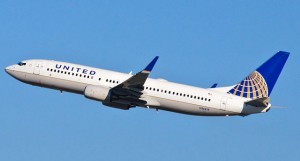Whether traveling with a young child or a dementia-burdened elder, there are occasions when traveling by plane simply requires two passengers to sit next to each other. Unfortunately, according to The Huffington Post, that is no longer a simple task, as seats on planes become progressively pricier and more are reserved for so-called priority passengers.
Often, United States based airlines hold back a large number of the standard economy seats, even when the flight is only partially filled. This is often done to accommodate the airline’s best customers, such as those who are frequent flyers. The seats that are held back are often those involved with additional fees, and the airline sets them aside in the hopes of earning the attention of a consumer willing to pay for extra leg room. Because of this, to insure two seats placed together on a flight, consumers are forced to pay an upcharge to be seated in a “preferred” section of economy seats.
However, there are some means of avoiding this upcharge or, at the very least, minimizing it. The article heavily suggests booking early, when there are plenty of seat selections still available. When purchasing seats for an adult accompanying a child, make sure to enter the child’s age, as some computer systems employed by airlines automatically insure that the adult and child will be kept together as a unit, if the child is under the age of twelve. If this doesn’t work, call the airline and explain the situation, and see if there are any available adjacent seats. If the airline remains adamant, show up to the check-in gate exceptionally early and discuss the issue. If the issue still remains, bribing people who occupy the seat can also be a somewhat valid option.
If the airline makes the issue too contentious, it is always an option to change plans or airlines, if it is that important to sit next to the accompanying passenger. This may be more expensive, but it could be worth it for the ease of use. In the case of Southwest, they don’t allow for seat reservations; however, they do allow travelers with children to have priority boarding, insuring their ability to sit next to their child.
The issue can still be a problem, with some airlines remaining adamant. There are some options—moving to change airline policy, or trying to pass new regulations and legislations—but these avenues can often be complicated and fail to pay off.
